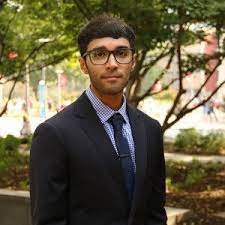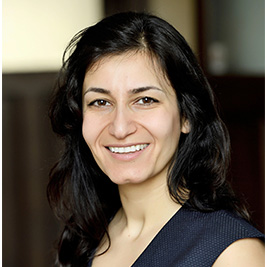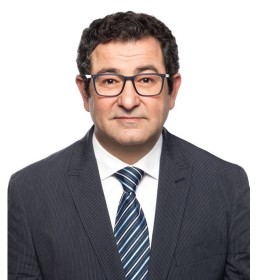2023/2024 Research Seminar Schedule
The research seminar series takes place in the Engineering Management and Education building (EME) on UBC’s Okanagan campus, in room EME 4116.
All are welcome to attend.
Please note that virtual attendance can be accommodated. Registration is required for virtual attendance.
Past Speakers
Co-creating Educational Consumer Journeys: A Sensemaking Perspective
About Dr. Wilner
Dr. Sarah Wilner is Associate Professor of Marketing, Chair, Brand Communications and Academic Director for PhD and Research-Based Masters Programs in Management at Wilfrid Laurier University’s Lazaridis School of Business and Economics. She studies marketing and brand management (especially how marketers interpret consumers and vice versa); product/service innovation and design and consumer culture. Sarah specializes in qualitative methods of inquiry, investigating phenomena by being immersed in them. Wilner is an award-winning researcher and educator: her paper (with co-authors), “Doing Design Thinking: Conceptual Review, Synthesis and Research Agenda” won the Journal of Product Innovation Management‘s Thomas P. Hustad Best Paper of 2019 award and she is the recipient of the Lazaridis School of Business and Economics Innovation Award. At Laurier, Wilner has taught at every level (sometimes concurrently!), including BBA, MSc, MBA and PhD courses. She has also taught Masters students in Canada, Denmark, France and Japan.
Entrepreneurial Impacts of Blockchain-backed Financing: Do Public Token Offerings Slowdown or Accelerate Innovation in Startups?
About Dr. Havakhor

Taha Havakhor is an Associate Professor of Information Systems and a Desautels Scholar at Desautels Faculty of Management at McGill University. In 2021, he won the Early Career Award from the Association for Information Systems (AIS). Prior to joining McGill, he was the Research Director of the Institute for Business and Information Technology (IBIT) and Assistant Professor of Management Information Systems at the Fox School of Business at Temple University. His research focuses on combining advanced computational and econometrics approaches to address problems at the intersections of science, technology, and economics. His scholarly work has been published/accepted in premier outlets such as Management Science, MIS Quarterly, Information Systems Research, Harvard Business Review, Journal of Marketing, Information Systems Journal, and the Journal of Management Information Systems.
Are Targeted Matching Schemes Effective in Stimulating Retirement Savings?
ABOUT DR. POLIDANO
Dr. Cain Polidano is a Principal Research Fellow at the Melbourne Institute, a research-only department with the Faculty of Business and Economics at the University of Melbourne. His work is often in partnership with government and involves the use of administrative data and econometric tools to conduct research to inform education, Indigenous and retirement policy. Currently he is working on Australian Research Council Grants related to Indigenous entrepreneurship, impacts and drivers of Australia’s frontier wars and equity and effectiveness of retirement policies. Prior to completing his PhD, Cain was a Senior Economist within the Australian Government.
Inverse Optimization to Learn Personalized Diets
About Dr. Ghobadi
Kimia Ghobadi is a John C. Malone Assistant Professor in the Department of Civil and Systems Engineering. She is an associate director of the Center for Systems Science and Engineering, a chair member of the Malone Center for Engineering in Healthcare, and a member of the Center for Data Science in Emergency Medicine. Her research focuses on using mathematical models, optimization techniques, and data analytics to solve problems in complex systems, particularly in healthcare systems and medical decision-making environments. She develops models and solution techniques in inverse optimization, mixed-integer programming, and online algorithms.
How Philosophy can contribute to Public Policy? The Case of Education
ABOUT DR. STOJANOV
Krassimir Stojanov is Professor and Chair of Philosophy of Education at the Catholic University of Eichstaett-Ingolstadt, Germany, and co-founder of the new Institute of Philosophical Research in Education in Munich. Main topics of his research are educational and transnational justice, human flourishing and its social prerequisites and conditions, critical social theory, philosophical foundations of democratic education, among others. He is author of many articles in English and German as well as of several books on these topics including “Education, Self-Consciousness, and Social Action. Bildung as a Neo-Hegelian Concept” (Routledge 2018) and “Education against Populism?! On Anti-Democratic Half-Education and Its Alternatives” (Springer 2022, in German). Further major recent publications of him are Inclusive Universalism as Normative Principle of Education. In: Educational Theory, Volume 73, Issue 2 (2023), pp. 245-257; Global Justice and Democratic Education. In: Culp J, Drerup J, Yacek D (Eds.): The Cambridge Handbook of Democratic Education. Cambridge University Press, Cambridge 2023, pp. 281-297; Democratic Education and Epistemic Justice. In: Webster/ Airaksinen/ Batra/ Koschevnikova (Eds.): Humanizing Education in the 3th Millennium. Springer. Singapore 2022, pp. 83-91
Do Remote Workers Deter Neighborhood Crime? Evidence from the Rise of Working from Home
About Dr. Matheson
Jesse Matheson is a Professor in the Department of Economics at the University of Sheffield. He has previously taught at the University of Leicester and the University of Calgary. Jesse studied economics in Canada at the University of Calgary (BA, PhD) and Queen’s University (MA), before moving to the UK in 2011. In 2015 he was a visiting scholar at Cornell University. Jesse’s work covers topics in public, labour and health economics. Previous work considers the effectiveness of policy interventions that target vulnerable populations. This includes a large-scale randomised field study in policing domestic violence. He has also published research on the effect of social and neighbourhood infrastructure on individual decisions in the context of smoking, marriage, and raising children. Jesse’s recent research explores the economic determinants, and consequences, of the spatial distribution of labour within urban settings. Of particular interest is how the post-pandemic rise in remote working is shifting economic activity and changing cities.
How Do Product Returns Affect Supply Chain Performance and Sustainability?
About Dr. Ülkü
Ali Ülkü, Ph.D., P.Eng., is a Full Professor in the Faculty of Management and the (founding) Director of the Centre for Research in Sustainable Supply Chain Analytics (CRSSCA) at Dalhousie University, Halifax, NS, Canada. He has a Ph.D. in Management Sciences (Waterloo), an M.Sc. in Operations Research (Çukurova), and a B.Sc. in Industrial Engineering (Bilkent). His research includes sustainable supply chain and logistics systems, manufacturing and service operations analysis, green marketing and optimal contract designs, analytical modeling of sustainable production and consumption, and interdisciplinary, community-based policy problems. His publications appear in such journals as the International Journal of Production Economics, Journal of Business Research, Journal of Retailing and Consumer Services, Journal of Cleaner Production, and Service Science. His co-edited book, Big Data Analytics in Supply Chain Management: Theory and Applications, was published in 2020 (CRC Press). He is an Associate Editor for INFOR: Information Systems and Operational Research. A recipient of teaching excellence awards, he has taught operations and supply chain management, business analytics, optimization, logistics, and transportation courses at various universities in Canada, Türkiye, and the USA. Dr. Ülkü was honored with the 2019 Distinguished Professor Award by the IEOM Society International and is a 2023 Global Triple-E Awardee (Education Champion).



